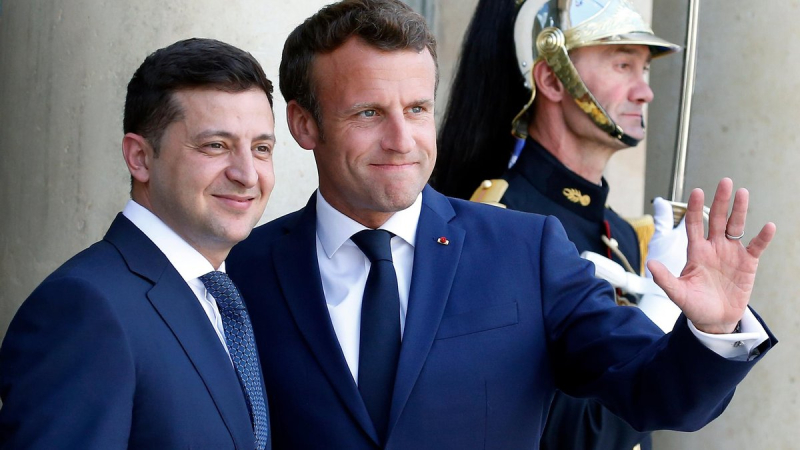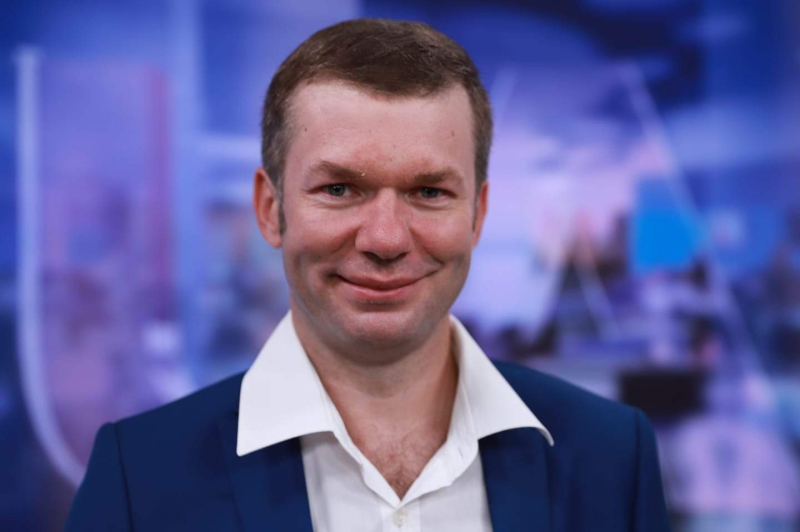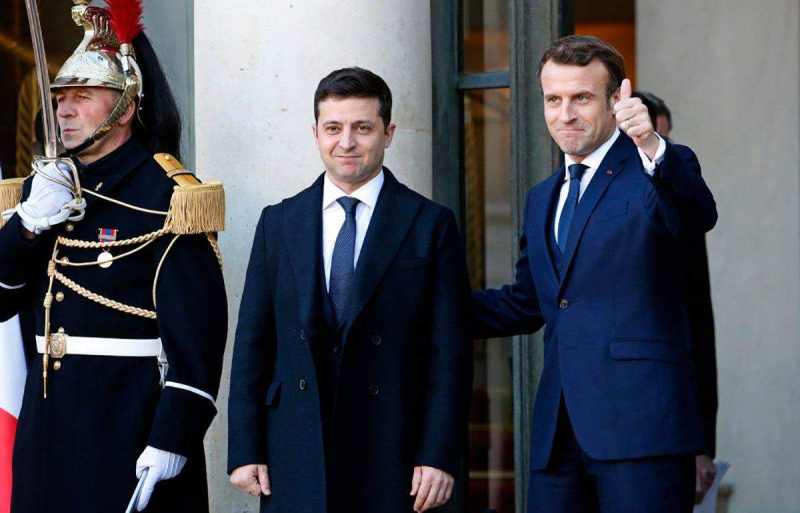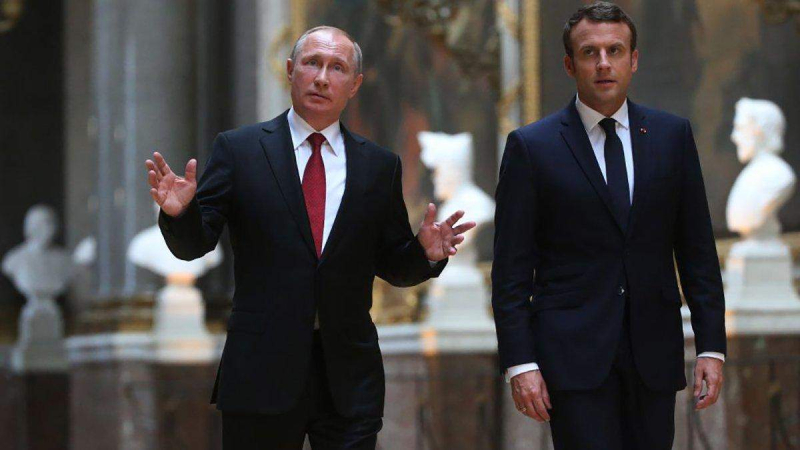
Interview with an expert on Macron's strategy/Getty Images
In the run-up to the parliamentary elections that are due to end the current electoral cycle in France, President Macron has been actively collecting bonus political points for himself. And again thanks to the theme of war and peace in Ukraine. At stake is the opportunity to further strengthen presidential power. And the loss of this opportunity can cost the French leader dearly. And Ukraine too.
What is the intention of the French to open the Odessa port, why does Macron talk about saving Putin’s face, what will be the reason for the record low turnout of French voters in the first round of the parliamentary elections, what can his opponent Mélenchon oppose Macron’s political allies and whether we will witness the coexistence of the president with the opposition government in the political process of France after the parliamentary elections – the chief consultant of the Institute for Strategic Studies Ivan Us.
Deblockade of the Black Sea
< strong>How are the French going to unblock the Black Sea?
Look, regarding the unblockade of Odessa, it somehow turned out that in the very At the beginning, such an initiative was made by the Prime Minister of a country that is no longer a member of the European Union. I mean Boris Johnson. It was he who first said that this should be done.
After that, one of the admirals of Her Majesty's fleet said that the British could ensure the deblockade by providing military boats to cover the Egyptian merchant ships.
So that would be the pattern. For a country that needs Ukrainian grain to act in tandem with London in order to unblock the Odessa port. Then one day Turkey began to appear in this context. As usual, focusing purely on their own interests. It looked as if the talks about this were continuing without the participation of the EU.
I understand that now, before the parliamentary elections in Paris, they again decided to deal with Ukraine in search of additional electoral points for Macron. The French leader wants to demonstrate to the voters in such a way that the country is also behaving very actively.
In addition, it is important for the French to remove the Russian naval block from the Ukrainian port also because in the event of a lack of food in the Middle East, in particular in Algeria, France will be sent another stream of refugees.
In order to achieve success in the deblockade, the French side needs to be among the countries that take the initiative in unblocking, and this is the same Great Britain and the USA, use all possible diplomatic ties so that at the UN General Assembly raise a related question.
The result of this should be a document adopted by this organization that it is necessary to ensure the passage of merchant ships to countries that primarily need our domestic grain.
For example, from Odessa to Egypt or any other Middle Eastern state . This will be the basis for the parties to the process to provide their military boats for escort. At the same time, turn to Russia, emphasizing that if she takes advantage of the situation in her own favor, she will probably receive a response and a military nature from the parties providing escort to ships with our grain.
 This is how I see one scenario.
This is how I see one scenario.
Second involves providing us with appropriate weapons so that we can independently carry out an operation to unblock our port facilities in Odessa. In this way we will be able to drive the Russian fleet far enough from our shores. By destroying or damaging as many ships and submarines as necessary beforehand.
“Saving Putin's face” and rhetoric towards Ukraine
How can one combine Macron's words about the need to “save Putin's face” and the recent statement by the representative of the French leader about the inadmissibility of concessions to Russia? Macron is interested in how voters will react to certain of his public statements on Ukraine.
The problem here is that on the one hand there was a recent presidential election, where Le Pen stood with pro-Russian rhetoric. And now the parliamentary problem is already with Mélenchon.
The current French president believes that with such conciliatory statements he will attract fans of his rival. The latter were very sensitive to the crisis processes that began as a result of the Russian invasion of Ukraine.
They view the Kremlin as a guarantor of stability in the food and energy markets. And they don't like the rise in prices that we can see now. For example, wheat is now worth almost $600 per metric ton. While in January this type of agricultural product cost $372 per metric ton.
However, something tells me that in case of a good result on June 19 of the pro-government party, the rhetoric of their political guide, and concurrently the president, will change towards a more pro-Ukrainian one, according to which France does not want to concede to Russia, as Macron's representative has already said.
The president in Paris is watching very closely how his words will affect sociology in order to make all the necessary adjustments to the positioning of his fellow party members in their constituencies between the first and second rounds. So we are dealing with the usual political expediency.
 Turnout in elections in France
Turnout in elections in France
What is the reason for the record low turnout for the first round of the parliamentary elections, which is already being talked about in France?
People in countries like France tend to be pragmatic. They understand that it is unlikely that the first round of elections will be decisive whether people come to vote or not. The decisive vote will take place in a week – in the second round. There shouldn't be any turnout problems in the second round.
Therefore, yes, I agree that there will be some apathy on the day of the first round. And in the second round, the electorate will be much more active. There are too many challenges facing the country. The question is whether the EU will strengthen its own positions or continue to weaken until the moment when it inevitably breaks up. The choice between Macron and Le Pen is an existential choice. To be EU or not.
What can Mélenchon oppose the French president during the political duel in the parliamentary elections?
There are fears that Mélenchon could pose a real threat to Macron. He created an alliance that included French socialists, communists and the Greens. I am very surprised by the appearance of the latter in this coalition, because I rather associate the greens with the right spectrum. And by no means to the left. Thus, the pro-government forces will have to reckon with the power of their left-wing opponents.
In this regard, certain experts from the Macron camp were inclined to believe that it might be better to appoint a person from the camp of political opponents as prime minister in order to achieve some kind of balance strength.
Nevertheless, Mr. Macron appointed Ms. Born to this position. And it turns out that the administration of the French president understands, based on certain analytical data, that the results of the rivals will not be so impressive as to yield and appoint a prime minister who will come from the left.

Macron called for saving Putin's face/Photo by Getty Images< /p>
From your words, I understood that the coexistence of the president with the opposition government is impossible? In political science, this phenomenon is called “cogabitation”.
Impossible. The very fact of Born's appointment as prime minister puts an end to this. The maximum that is possible is a few compromise appointments in favor of Mélenchon's allies and no more. There is a theoretical possibility that the former Macron rival in the presidential elections himself will receive some minor position in the government. However, this possibility is minimal.

